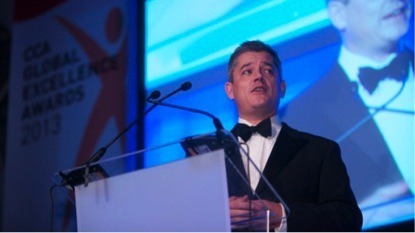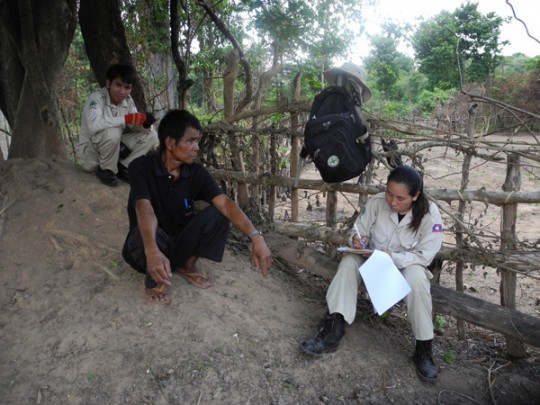 In Geneva, we sometimes have the impression that the local job market is divided between international organizations and private companies, seemingly two completely different worlds separated by a clear line. For those who work in the private sector, international organizations may all seem alike, resembling secret agencies with mysterious acronyms such as WFP, WHO or WIPO, that sound all the same to an ordinary person. The private sector, on the other hand, is much more straightforward: DHL delivers letters, Rolex produces watches and Procter & Gamble makes pretty much anything you need.
In Geneva, we sometimes have the impression that the local job market is divided between international organizations and private companies, seemingly two completely different worlds separated by a clear line. For those who work in the private sector, international organizations may all seem alike, resembling secret agencies with mysterious acronyms such as WFP, WHO or WIPO, that sound all the same to an ordinary person. The private sector, on the other hand, is much more straightforward: DHL delivers letters, Rolex produces watches and Procter & Gamble makes pretty much anything you need.
So what is it like to work in an international organization? Are these two spheres, private and humanitarian, really that different? We went to Gavi, the Vaccine Alliance to speak with someone who had crossed the bridge between the private and international development sectors and who can therefore provide an informed comparison between these two experiences.
Mr. Andrew Mends, a British national living in Geneva for the past six years, is one of those people who has spent almost his entire career in the private sector. While employing his expertise in Field Sales Operations, Customer Service and Strategy Development, he contributed to the growth of companies in areas as diverse as soft drinks and cosmetics. Nearly two years ago, he decided to change direction and joined Gavi, an international organization created in 2000 to improve access to vaccines for children across the world. He is now the Director of Operations at Gavi, leading the operational functions which include Procurement, Facilities, Special Events, Travel, Security, and both Diplomatic and Staff Services.
For Mr. Mends, this change came by chance: he was approached about a temporary opportunity that ultimately became a permanent posting for which he applied. However, in view of his background, what led Gavi to select his candidature? According to Mr. Mends, the answer lies precisely in the diversity of his experience: having worked in so many different areas, including operations, security and logistics, he was able to bring considerable expertise that is crucial to the Director of Operations role. Mr. Mends argues that “from an organizational culture perspective, every organization is different and it is not as simple as comparing the humanitarian or development sectors against the private sector; many factors contribute to an institution’s culture”. Nevertheless, he agrees that there are important differences between the two worlds. He believes that working in the international development field has a qualitative influence on the life of the employees, both professionally and privately. “I tend to be quite passionate about and engaged with whatever I am doing”, he says, “but this is a different matter, it goes much deeper.” In his opinion, “when you get stressed working for a private company, sometimes it is good to remember that you are ‘only’ making sparkling water, or cosmetic lotions”, he notes.“When your goal is to save children’s lives, because it is so worthwhile, the motivation that drives you to work harder is different, it is a drive that comes from within.”
Mr. Mends argues that “from an organizational culture perspective, every organization is different and it is not as simple as comparing the humanitarian or development sectors against the private sector; many factors contribute to an institution’s culture”. Nevertheless, he agrees that there are important differences between the two worlds. He believes that working in the international development field has a qualitative influence on the life of the employees, both professionally and privately. “I tend to be quite passionate about and engaged with whatever I am doing”, he says, “but this is a different matter, it goes much deeper.” In his opinion, “when you get stressed working for a private company, sometimes it is good to remember that you are ‘only’ making sparkling water, or cosmetic lotions”, he notes.“When your goal is to save children’s lives, because it is so worthwhile, the motivation that drives you to work harder is different, it is a drive that comes from within.”
According to Mr. Mends, another important difference between Gavi and the companies where he had worked before resides in the level of scrutiny. For example, of each dollar that Gavi receives, 96 cent is spent on vaccines. He explains that such low operating costs are only possible thanks to incredibly rigorous controls: “The notion that a USD 200 expenditure means leaving 200 people without a vaccine has a very strong impact on how you make decisions”, he explains.“Also, because we are a funded organisation, there has to be complete transparency in how every dollar is spent.”
Obviously, stress is something that is always present, regardless of the goal of the company you are working for; however, according to Mr. Mends, the nature of the work influences the way such pressures are handled: “There is, of course, a lot of stress in what we do, and I do not work any fewer hours; on the contrary, I travel more and to places that could carry a much higher travel risk. But honestly, from a personal point of view, when I go home now, I am generally much happier because I feel very lucky to work in an organization that is doing so much good in the world, and I can play a part in it. I am proud of that.”
We can easily understand this feeling: the statistics that Gavi presents after 14 years of activity are staggering. Since its creation, it has reached 440 million children, preventing an estimated 6 million deaths in the process. Gavi’s next objective is to reach 300 million additional children between 2016 and 2020, saving 5 to 6 million more lives.
Mr. Mends’s story shows us that there are skills sets that can be transferred not only across industries but also from the private sector to the international development field. When we dig deeper, the mist lifts away and the line that separates these two worlds is revealed to be a fine one. In the final analysis, the kind of activity we choose and how it fulfills our goals seem to be a fundamental success factor. In many cases, humanitarian type work is a calling that one must try to answer. Not so for Mr. Mends. “I cannot say that I always wanted to do this job, I was only vaguely aware of what Gavi did”, he says frankly. It was chance that led him to Gavi. Still, “having got here, it has been fantastic. In a completely objective way, I can say that this is the best job I have ever had. Long may it continue!”
Sources: http://www.gavi.org/
Photo credit: Gavi Alliance


 I
I Mr. Mends argues that “from an organizational culture perspective, every organization is different and it is not as simple as comparing the humanitarian or development sectors against the private sector; many factors contribute to an institution’s culture”. Nevertheless, he agrees that there are important differences between the two worlds. He believes that working in the international development field has a qualitative influence on the life of the employees, both professionally and privately. “I tend to be quite passionate about and engaged with whatever I am doing”, he says, “but this is a different matter, it goes much deeper.” In his opinion, “when you get stressed working for a private company, sometimes it is good to remember that you are ‘only’ making sparkling water, or cosmetic lotions”, he notes.“When your goal is to save children’s lives, because it is so worthwhile, the motivation that drives you to work harder is different, it is a drive that comes from within.”
Mr. Mends argues that “from an organizational culture perspective, every organization is different and it is not as simple as comparing the humanitarian or development sectors against the private sector; many factors contribute to an institution’s culture”. Nevertheless, he agrees that there are important differences between the two worlds. He believes that working in the international development field has a qualitative influence on the life of the employees, both professionally and privately. “I tend to be quite passionate about and engaged with whatever I am doing”, he says, “but this is a different matter, it goes much deeper.” In his opinion, “when you get stressed working for a private company, sometimes it is good to remember that you are ‘only’ making sparkling water, or cosmetic lotions”, he notes.“When your goal is to save children’s lives, because it is so worthwhile, the motivation that drives you to work harder is different, it is a drive that comes from within.”

